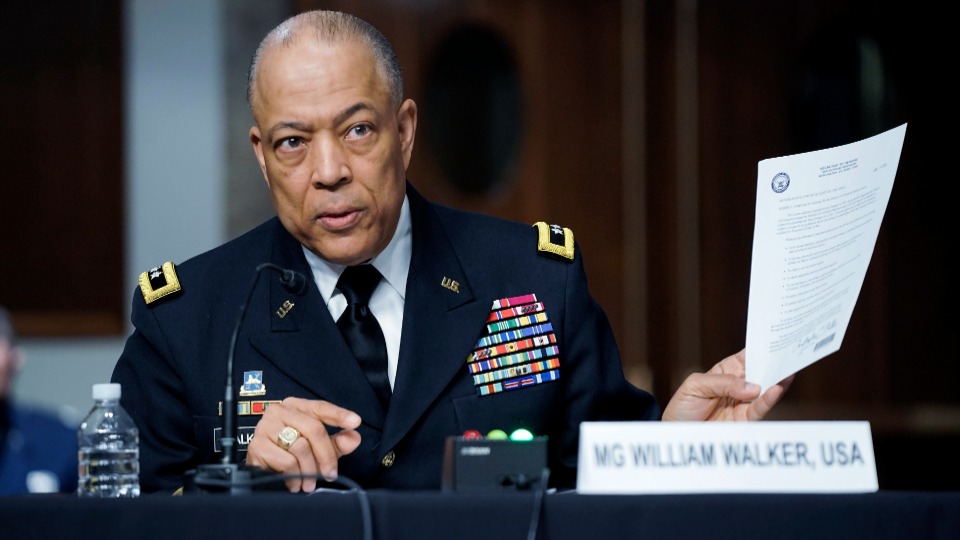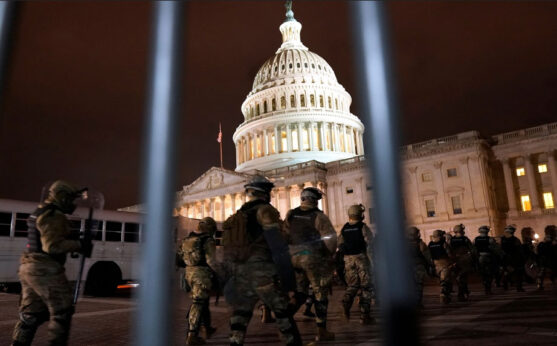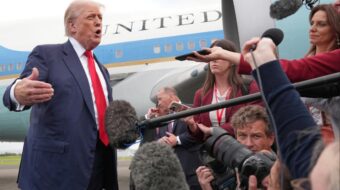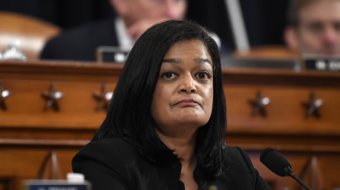
By the day, facts uncovered in the ongoing Senate hearings on the security failings connected to the Trumpite attack on the Capitol are raising concern that there may have been, at the least, advance knowledge and, possibly worse, collaboration involving officials on various levels.
Testimony Wednesday added the Pentagon leadership to the list of top officials who may have had advance knowledge of the attack that the FBI described as a planned assault by right-wing extremists.
No one is surprised by the clear evidence confirming how Republican lawmakers like Sens. Josh Hawley and Ted Cruz helped lead the attack on the Capitol Jan. 6. Yesterday many were disturbed, however, when the National Guard’s Maj. Gen. William Walker revealed that the Pentagon leadership acted in an “unusual” manner that day and delayed for three hours the dispatching of troops to help end the siege.
Walker told Congress that it started with a “shift in guidance” that was communicated by the Pentagon to him on Jan. 5, a day before the insurrection.
The memo, Walker said, stated that he would be required to get the pre-approval from Trump administration officials before preparing troops to respond to any civil disturbance. “It required me to seek authorization from the Secretary of the Army [Ryan McCarthy] and the Secretary of Defense [Chris Miller],” he told senators during the hearing.
“So, no civil disturbance equipment could be authorized unless it came from the Secretary of Defense … [who] told me I needed his permission to escalate to have that kind of protection.” Walker called the January 5 memo “unusual.”
Most disturbing about the document, of course, is that it was sent to Walker just a day before he would need to deploy those troops in order to protect the lawmakers under siege at the Capitol. The chilling conclusion any reasonable person can draw from the timing is that it is at least possible that the Secretary of Defense and Secretary of the Army knew ahead of time that coming events might require such a troop deployment. Whether that is the case or whether even worse is the case will have to be the subject of further investigation.
Democratic lawmakers are, needless to say, extremely concerned about the apparent unwillingness of Pentagon brass to provide help to former U.S. Capitol Police Chief Steven Sund when he literally begged for help from National Guard forces. Walker told the senators yesterday that he was “stunned” at the Pentagon’s response.
“I was frustrated. I was just as stunned as everybody else on the call,” he said.
Lt. Gen. Flynn on the call
Included in the Pentagon group on the phone call during which Sund was begging for help was Lt. Gen. Robert Flynn, the brother of Donald Trump’s disgraced National Security Adviser, Michael Flynn. The latter Flynn was convicted and imprisoned for lying to the FBI; he was pardoned by Trump at the end of his presidency. He had encouraged Trump to declare martial law following his election loss in order to avoid handing over power to Joe Biden.
The Pentagon has already been caught lying about Lt. Gen. Flynn and has had to retract its claim that he was not on the call by admitting he indeed was a part of the discussion.

Walker told the senators Wednesday that it took Army leaders more than three hours to authorize the use of troops to help quell the January 6 insurrection. He said it was around 1:49 p.m. that day when he took a “frantic call from” Sund, whose “voice was cracking with emotion, indicating that there was a dire emergency at the Capitol, and he requested the immediate assistance of as many available National Guardsmen as I could muster.”
Senators asked Walker how he would have responded to the call if he had not been under the new restrictions placed upon him by the Secretary of Defense and the Secretary of the Army. Walker said he would have “immediately pulled all the guardsmen that were supporting the Metropolitan Police Department.”
“They had the gear and the vehicles,” Walker said. “I would have had them assemble in the armory, and then get on buses and go straight to the armory and report to the most ranking Capitol Police officer they saw and take direction, and further.”
Walker testified that he could have sent 155 guardsmen to the Capitol shortly after 2 p.m., but could not dispatch them without approval, adding that he eagerly loaded the guardsmen onto buses to put their gear on. Still lacking authorization to deploy, they waited.
“The approval for Chief Sund’s request would eventually come from the Acting Secretary of Defense and be relayed to me by Army Senior Leaders at 5:08 p.m.—3 hours and 19 minutes later,” Walker told the senators.
Rep. Jason Crow of Colorado declared last night on national television that lawmakers “will get to the bottom of this and we will tell all to the American public.”
Crow also said last night, “Donald Trump and his supporters gave permission to right-wing extremists who committed these crimes. We must take measures to protect the Capitol and to protect the American people. We need to protect ourselves, but we cannot in, the process, change who we are. We believe in democracy.”
Wednesday was not the first time that fingers of blame for what happened on Jan. 6 have been pointed at the Pentagon.
During hearings last week, the former chief of the Capitol Police, as well as the former House and Senate sergeants at arms, all of whom resigned following the riot, accused law enforcement agencies of providing bad intelligence and blamed the Defense Department for not responding fast enough to their requests for help.










